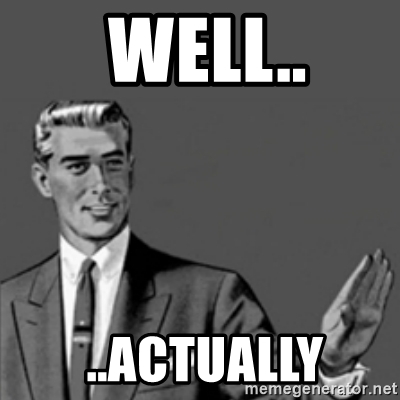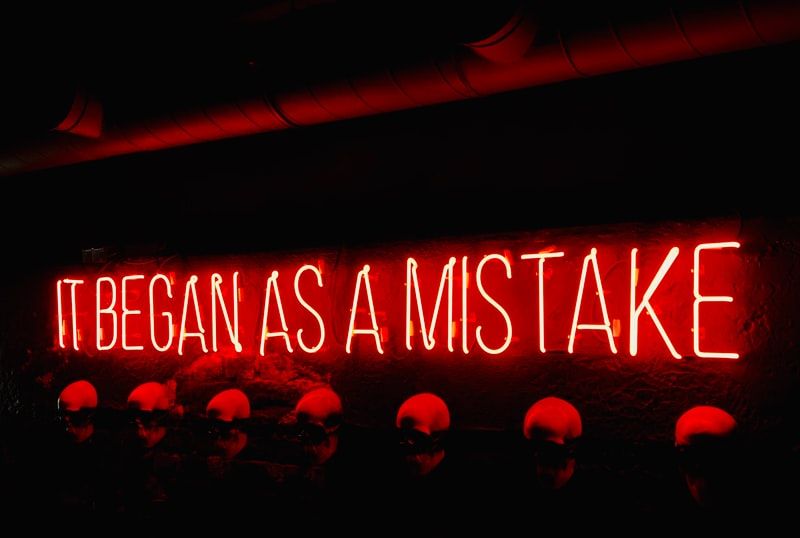It was almost imperceptible. A slight shift in her gaze, a miniscule shake of her head, a flash behind her eyes. She knew, and then I understood. I had done it again.
I didn't mean for this to keep happening. Really! Interruptions like these just slipped out, before I had a chance to rein them in, to hold them back. I might have read an interesting article, saw a cool TV clip, listened to an engaging podcast. I learned things, and enjoyed it. What was the problem in sharing my knowledge? They'd want to know too, after all. Doesn't everyone?
I said it, and as I did she gave me that look, the one I'd seen so many times before. The look that says "come on, not this again." The mingled disappointment and resignation and half-buried hope were clear as day, just for a split second.
She rallied admirably; she kept the conversation going with barely a hiccup. Our friends that had come over for dinner didn't even notice. You'd have to know my wife like I do to be able to realize that something had happened. But I do know her, so I did realize. For being weightless, thoughts sure do hit you hard.
I was that guy. I was the guy that told you all about the things you thought that were wrong, the things that you believed that were incorrect. I was the guy that spouted opinions as facts, that proclaimed my beliefs and understandings as the true way of the world. The ones who try to make you believe you've been in the wrong this whole time. I did none of this intentionally, often not even consciously, but it happened all the same.
I was the "well, actually..." guy. And it took me thirty years to realize it.

I don't think of myself as an opinionated person. I doubt any of us do. That doesn't mean I don't have opinions, just that I don't think of myself as a person who needs to shout those opinions from the rafters. I like what I like, and so can you, provided you admit you're incorrect.
I am also a programmer. In my mind, this contributes significantly to my "well, actually" syndrome. Computers are inherently stupid machines. At heart, they understand two possibilities: on, and off. Everything ever produced by computers has been made by manipulating groups and collections of these states to compose something far more interesting. Consequently, programmers tend to think of problems in binary: either it works or it doesn't. Either it's right, or it's not. It's strikingly simple, even elegant, in the way that life isn't.
I want to know, and I can't stand not knowing. I want to understand, to learn, to grow, so I can put it all together. I want to be seen as smart. I want to comprehend my world as fully as can be imagined. I want people to know that I know things, that I am intelligent, that I am worth knowing. Doesn't everyone?
And in her look, I saw the problem. Was I just trying to help, or was I trying to be smarter than them? Three times in four minutes, she told me later, I had corrected someone who was talking. Was I really trying to be helpful? Or had I mistaken my insecurity, my need to be seen as smart, for magnanimity?
I looked. I saw. And I understood.
That was a year ago. Now, in the present day, I'm making efforts to not be that "well, actually" guy. Efforts like trying to not interrupt people, picking my verbal battles, or just saying "cool, man" and letting it go. Efforts that remind me that even though I know things, that doesn't mean everyone else needs to. Efforts which I think, I hope, I pray will start paying off soon.
In the meantime, I keep going. Life doesn't stop because a realization thirty years in the making knocked you on your ass. The difference is, now I occasionally remind myself that well, actually, I might have been in the wrong this whole time.








